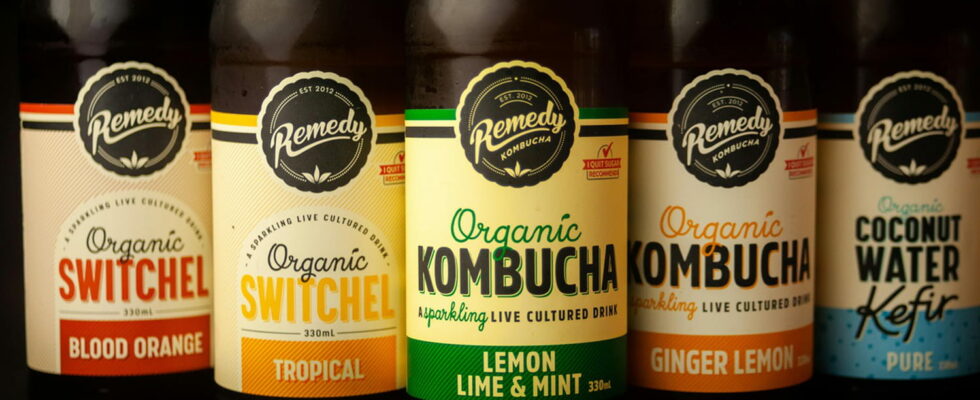Sold as good for your health, very fashionable drinks at the moment contain alcohol. Problem: manufacturers make no mention of it on the labels.
We know that we have to be on the lookout when we go shopping. Manufacturers will stop at nothing to sell us their products, even if it means lying blithely. Whether through misleading information, hiding the nature of the ingredients used behind opaque names, using marketing techniques bordering on legality or knowingly omitting certain information, all techniques are good!
The latest fashionable drinks, which have invaded the shelves of organic stores and supermarkets, are no exception! Often presented as healthy alternatives to sodas, they seduce with their promises: they are full of probiotics supposed to improve digestion and strengthen the intestinal microbiota. Associated with a balanced lifestyle, they particularly attract consumers seeking naturalness. We are obviously talking about kefir and kombucha. But what could go wrong with these drinks that are so beneficial to our health?
It turns out that UFC-Que Choisir discovered a carefully concealed element: the presence of alcohol. And this, without this being systematically specified on the labels: half of the references purchased as part of the survey made no reference to the presence of alcohol, the other only mentioning the latter in very small letters. characters.
Made using yeast and bacteria, kefir – whether made from milk or water – and kombucha – made from sweet tea – owe their sparkle to a natural fermentation process. A process which inevitably results in the manufacture of alcohol, even if in small quantities, the rate generally being between 0.5 and 1.2% (or degrees) for industrial products – and it can rise to 2% on homemade kefir! Only here: we find no mention of it on the labels!
This little secrecy is, at first glance, legal since, in France, the presence of alcohol must be clearly mentioned on the product label from 1.2%. If the concentration rate is lower than this value, manufacturers are not required to mention it. Also, most producers adapt their manufacturing method to avoid crossing this fateful threshold.
However, this omission raises ethical and health questions. While the presence of alcohol is negligible for the majority of consumers, it can represent a problem for pregnant people, children, or those subject to religious or medical restrictions – alcohol and certain medications, such as antidepressants, are very bad housekeeping, even in very small doses. A formerly alcohol-dependent person found himself experiencing symptoms associated with alcohol consumption after drinking kombucha. The damage is very real…
However, this does not prevent certain kefir producers, such as the Labo Dumoulin brand, from asserting that their kefirs are “everyday allies for everyone, young and old” ! Only the Germline kombucha brand has taken the laudable initiative of including a warning pictogram for pregnant women on its bottle.
Faced with these findings, associations are calling for stricter regulations and better information on labels. For their part, manufacturers defend themselves by citing a vague legal framework for this type of drink. No obligation, no information!
